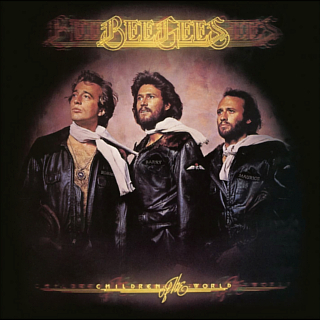
Children of the World is the fourteenth studio album by the Bee Gees, released in 1976 by RSO Records. The first single, "You Should Be Dancing", went to No. 1 in the US and Canada, and was a top ten hit in numerous other territories. The album was re-issued on CD by Reprise Records and Rhino Records in 2006. This was the first record featuring the Gibb-Galuten-Richardson production team which would have many successful collaborations in the following years.

Living Eyes is the sixteenth studio album by the Bee Gees, released in 1981. It was the band's final album on RSO Records, which would be absorbed into Polydor and subsequently discontinued. The album showcased a soft rock sound that contrasted with their disco and R&B material of the mid-to-late 1970s; having become a prominent target of the popular backlash against disco, the Bee Gees were pressured to publicly disassociate from the genre.
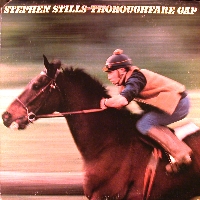
Thoroughfare Gap is the fifth studio album by American singer-songwriter Stephen Stills, released in 1978. It was a critical and commercial disappointment that only charted at number 84 in the US. This album is now available as a three-album set on two CDs with Stills & Illegal Stills, having never been released on its own on CD.

Eaten Alive is the sixteenth studio album by American R&B singer Diana Ross, released on September 24, 1985, by RCA Records in the United States, with EMI Records distributing elsewhere. It was Ross' fifth of six albums released by the label during the decade. Primarily written and produced by Barry Gibb of the Bee Gees, with co-writing from his brothers Andy, Maurice, and Robin, the album also includes a contribution from Ross' friend Michael Jackson who co-wrote and performed (uncredited) on the title track.

"(Love Is) Thicker Than Water" is a song performed by Andy Gibb, released in September 1977 as the second and final single by RSO Records from his debut album, Flowing Rivers (1977). The song was his second single that topped the US Billboard Hot 100. It was mainly written by Barry Gibb, with help from Andy Gibb and produced by Gibb-Galuten-Richardson. The B-side of this song was "Words and Music" in the US, but "Flowing Rivers" in the UK. It became a gold record.

"Shadow Dancing" is a disco song performed by English singer-songwriter Andy Gibb. The song was released in April 1978 as the lead single by RSO Records from his second studio album of the same name. The song reached number one for seven consecutive weeks on the Billboard Hot 100 in 1978. It was written by Andy and his older brothers, Barry, Maurice and Robin Ribb and Albhy Galuten arranged the song with Barry Gibb. While Andy Gibb would have three more Top 10 hits in the U.S., this would be his final chart-topping hit in the United States. The song became a platinum record.
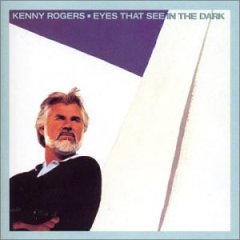
Eyes That See in the Dark is the fifteenth studio album by American country singer Kenny Rogers, released by RCA Records in August 1983.

After Dark is the third and final studio album by English singer-songwriter Andy Gibb. It features his last US Top 10 single "Desire", "I Can't Help It" and two Bee Gees numbers "Rest Your Love on Me" and "Warm Ride".

Heartbreaker is a studio album by American singer Dionne Warwick. It was released by Arista Records on September 28, 1982, in the United States. Her fourth album with the label, it was largely written by the Bee Gees, and produced by band member Barry Gibb along with Karl Richardson and Albhy Galuten; Gibb and Galuten also served as musicians on the album. Warwick recorded the songs on Heartbreaker during the spring of 1982.
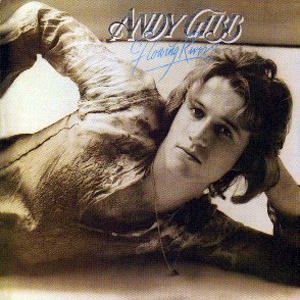
Flowing Rivers is the debut studio album by English singer-songwriter Andy Gibb. The album was produced by Albhy Galuten and Karl Richardson, with Barry Gibb on two tracks. It was released in September 1977 on RSO. Flowing Rivers was re-released by Polydor Records in 1998 in CD version.
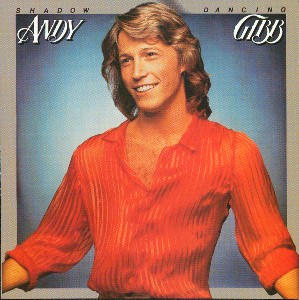
Shadow Dancing is the second studio album by English singer-songwriter Andy Gibb, released by RSO Records in June 1978 in the United States and September 1978 in the United Kingdom. It was Gibb's highest charting album in some countries including America and in Canada. This LP was his only album to chart in the UK. Four singles, including the three US Top 10 singles, were released from the album.
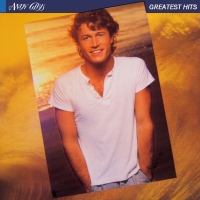
Andy Gibb's Greatest Hits was the first compilation album by Andy Gibb. It was released in 1980. Aside from the previous singles it also contains three new songs being "Time Is Time", "Me " and "Will You Love Me Tomorrow", the latter sung together with P. P. Arnold.

Pleasure Train is the first album by singer, songwriter, producer and composer Teri DeSario, released in 1978 by Casablanca.
"Rest Your Love on Me" is a country ballad performed by the Bee Gees and written and sung by Barry Gibb. It was the B-side of the US No. 1 hit "Too Much Heaven". Andy Gibb recorded the song as a duet with Olivia Newton-John for his 1980 album After Dark.

"(Our Love) Don't Throw It All Away" is a song penned by Barry Gibb and Blue Weaver and recorded by the Bee Gees in 1977 on the Saturday Night Fever sessions but was not released until Bee Gees Greatest (1979). A different version was released in September 1978 by RSO Records as the third single by Andy Gibb from his second studio album Shadow Dancing. His version was produced by Gibb-Galuten-Richardson.

"An Everlasting Love" is a song written by Barry Gibb, performed by Andy Gibb, released in June 1978 by RSO Records as the second single from his second studio album Shadow Dancing. It was produced by Gibb-Galuten-Richardson. The song peaked at #5 on the Hot 100 on 23 September 1978 and #10 in the UK. "An Everlasting Love" was Gibb's only Top 10 hit in the United Kingdom.

"Ain't Nothing Gonna Keep Me From You" is a song written by Barry Gibb in 1977. It was recorded by Teri DeSario and was her debut single and was included on her debut album Pleasure Train (1978). It entered the US charts on 22 July 1978, the same week that the number-one single was Andy Gibb's "Shadow Dancing", which was co-written by Barry and co-produced by Albhy Galuten. The musicians who played on this song also played on "Shadow Dancing". The single peaked at #43 on the Billboard Hot 100.

"Time Is Time" is a song written by Andy and Barry Gibb. Andy Gibb performs this song and was released as a single in November 1980 and included on Andy Gibb's Greatest Hits. The B-side, "I Go for You" was originally from his 1978 album Shadow Dancing.

The Eaten Alive Demos is an album of demos written and produced by Barry Gibb for Diana Ross' 1985 album Eaten Alive, made available as downloads on iTunes in October 2006. The album contained most of the songs with the exception of the title track and "Chain Reaction". In the spring of 2009, when iTunes changed into DRM-free downloads with higher bit-rates; all of the Barry Gibb demos were no longer available. In August 2011 all of the Barry Gibb demos reappeared on iTunes shortly after the opening of the download store on his official website where many of the same tracks were available. Another demo of the title track by Michael Jackson is known to have been recorded, but, to this date, has not yet surfaced.
Gibb-Galuten-Richardson were a British-American record producing team, consisting of Bee Gees founding member and British singer-songwriter Barry Gibb, American musician and songwriter Albhy Galuten and American sound engineer Karl Richardson. They produced albums and singles for Andy Gibb, Samantha Sang, Frankie Valli, Teri DeSario, Barbra Streisand, Dionne Warwick, Kenny Rogers, Dolly Parton and Diana Ross.


















